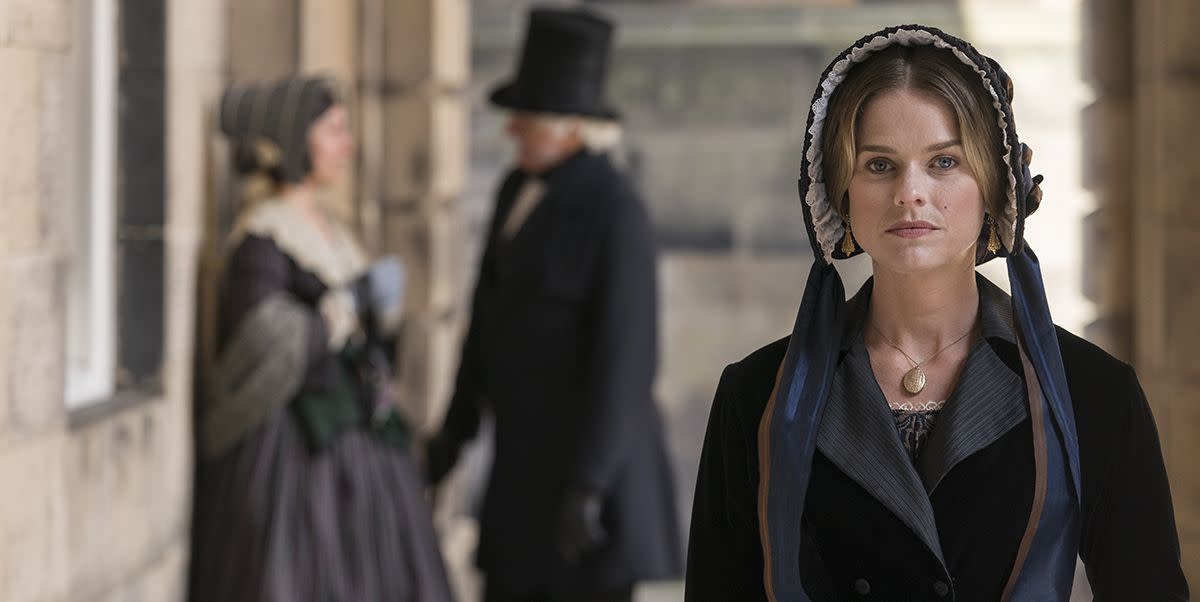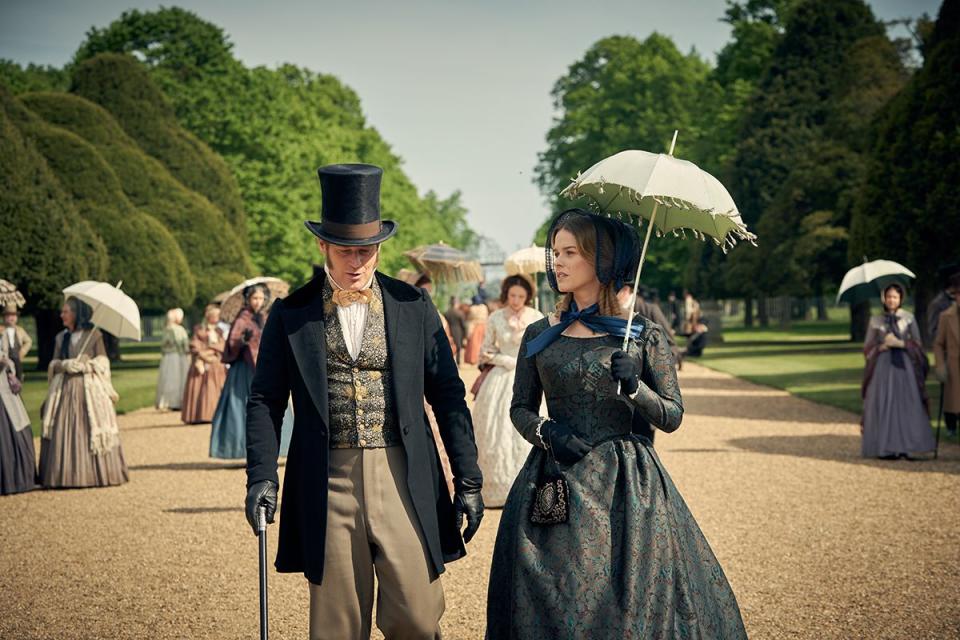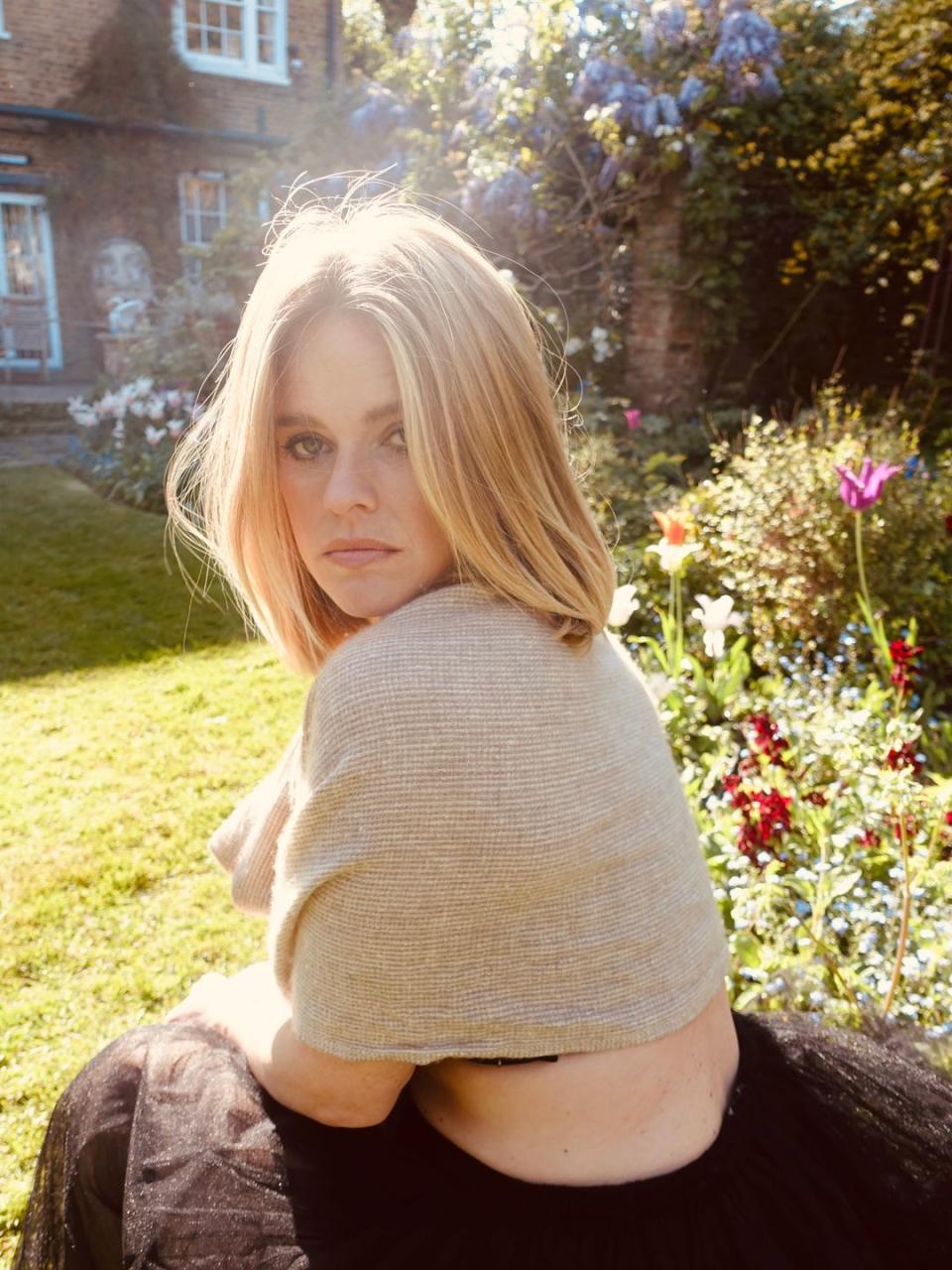'Belgravia' Star Alice Eve on the Shocking Episode 4 Twist That Changes Everything

“I love Alice Eve,” says Julian Fellowes, and it’s a good thing he does. After all, Eve stars in Belgravia, the new series from the Downton Abbey creator, and as the six-part story progresses, her Susan Trenchard—the socially ambitious wife to the drippy son of a new-money industrialist—becomes one of its most compelling and hard to unravel characters.
In this week’s episode of Belgravia, Susan, bored with her husband and carrying on an affair with a cad set to inherit an Earldom, finds herself at a crossroads that could destroy forever her hopes of a glittering life among London’s elite. (If you haven't seen the episode yet, there are spoilers ahead.) It’s a watershed episode for Susan and for Eve, whose character has slowly been revealing her true nature over the course of the series, and one that might not have worked in the hands of a lesser actress.

“I think she’s got a marvelous understanding of Susan,” Fellowes says. “Susan has a problem that through her own power of personality she will either survive or be destroyed by. I felt that Alice’s sense of experience and understanding of the situation made that storyline completely credible. And the way she plays it, you’re absolutely on her side—you want her to get away with it.”
And why wouldn’t you? Eve’s got an easy charm on screen (she’s appeared in everything from romantic comedies to a Star Trek movie, and has also performed on Broadway and the West End) and gives her Belgravia character a mischievous appeal, even when she’s up to no good. Here, the actress talks to T&C about her role, working in the Fellowes universe, and the episode four twist that will change everything on Belgravia entirely.
Susan’s a sort of sleeper hit in this series. She starts out seeming just like an inconvenient daughter-in-law to Mr. and Mrs. Trenchard but evolves over time.
She’s presented a bit one-dimensionally at the beginning as someone who’s a bit difficult and not so nice, but as the series unravels you realize that she’s a victim of her situation just like anyone else and that she’s quite tenacious and will find her way out of it. In the book Julian describes the character as more intelligent than the rest of society; she definitely has a brain.
Was that slow reveal part of what made you want to play her?
The series is so rich in story and has so many layers that Julian is able to hold in his head at the same time when it comes to how each character’s actions can contribute to this tapestry. I loved the complexity but also how every character was well designed and also understood. Susan Trenchard has such a specific goal in life and is able to go about achieving it almost like a modern woman would, without blocks. It may be one of the first times that a woman could have done that in the 19th century.
At the end of this episode, she discovers she’s pregnant—and her husband is likely not the father. What does that mean for her?
The situation she’s in could cost her life. There was such a thing in Victorian times as a fallen woman, which was a woman [with a child] who wasn’t attached to a man or house. Now, women can exist in many dimensions but back then they had to fulfill certain criteria in order to be accepted, and a fallen woman in the period could end up terrible and destitute. She’s playing a roulette game with her life. Today, modern medicine allows women options regarding how to have a child but at the time that wasn’t the case, so there wasn’t much for her to do—and the biological desire was strong in her. There’s a lot that hangs in the balance.
It's a series about life in the 1800s, but so much of it feels relevant today—from the way a family can operate to how class divides people. Was that modern significance apparent to you making the series?
I wouldn’t have said that before the coronavirus crisis. Now, we’re going through something we don’t go through regularly. What we’re living through today isn’t comparable to as much in history as we were before, but there’s still a struggle to survive. For someone like Susan, survival means staying in society—for other people, it means other things—but the story is universal because it’s about that aspiration and ambition. Today, the axis of our world has changed so dramatically that it does feel like looking through a lens at the past.
I’ve read that the costumes for the series could be a struggle, and that filming some seemingly simple scenes could take forever. What were the biggest hurdles for you in making the show?
I love a struggle and the idea of being stimulated. There was a lot to come to grips with and look at when it comes to occupying a different world, but I enjoy that. More and more I think the most important thing is just to empathize with a character; not judging their position, just taking into account their circumstances and seeing it from their point of view. When I found that, I felt completely vindicated in playing her because I found her in a mad race against everyone around her.

Julian recently told T&C that Belgravia is “darker” than some of his other work. Would you agree?
I loved Gosford Park from the moment it was released, and it was a bit darker than Downton Abbey. Of course, I loved Downton but it’s gentle. Belgravia is a rough ride—a gallop instead of a canter. That might be Julian’s interpretation of the time; the era you live through can bring out different things in people. There might have been an ease in Downton’s time that wasn’t there in the time of Belgravia; there’s a roughness in the tail that could have to do with the roughness of the time.
You’ve done romantic comedies, you’ve done science fiction, you’ve been in serious dramas on stage. What makes a role right for you and how does Belgravia fit in?
It changes. When I was younger, I had a great time doing She’s Out of My League; I was loving romantic comedies. Then, when I did Some Velvet Morning with Neil La Bute, I was interested in investigating the shadowy side of relationships between men and women. Now, I’m interested in exploring a character grappling with seizing her power, especially in a way that’s not dissimilar to how women have in the past few years. I like my work to be a reflection of my sentiment.
You Might Also Like

